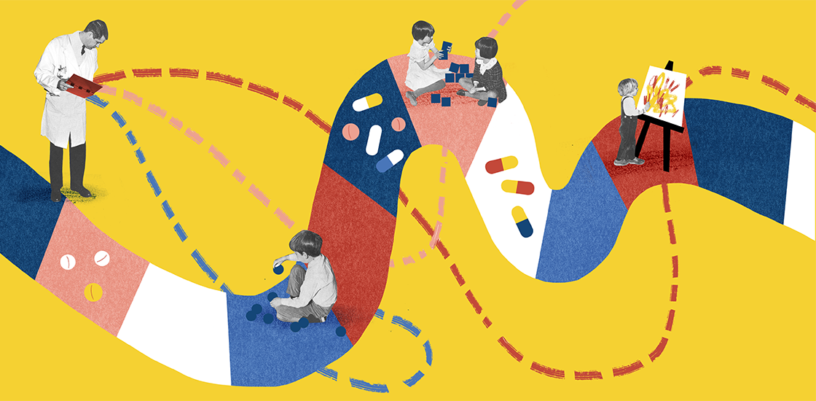
For parents in India, navigating the world of Autism Spectrum Disorder (ASD) can be overwhelming. Assessments are an essential part of managing ASD, and they can help identify the strengths and challenges of your child and provide important information to guide interventions and support. In this article, we’ll discuss the different types of assessments available for ASD in India and how they can benefit your child.
- Developmental Assessments:
A developmental assessment is a comprehensive evaluation of your child’s cognitive, social, emotional, and physical development. It’s usually done by a team of professionals, such as a pediatrician, speech-language pathologist, occupational therapist, and psychologist.
The goal of a developmental assessment is to identify areas where your child may be struggling and to provide recommendations for interventions and support. This assessment can also help identify early signs of autism and lead to early intervention, which has been shown to improve outcomes for children with ASD.
Developmental assessments may include:
- Observations of your child’s behavior and interactions
- Standardized tests to assess your child’s cognitive and language abilities
- Interviews with you and your child’s teachers and caregivers
- Diagnostic Assessments:
A diagnostic assessment is used to determine if your child meets the criteria for a diagnosis of autism. It’s usually conducted by a trained healthcare professional, such as a psychiatrist, neurologist, or clinical psychologist.
The goal of a diagnostic assessment is to provide a clear diagnosis, which can help guide treatment and support. A diagnosis can also provide a sense of relief and validation for families who have been struggling to understand their child’s behavior.
Diagnostic assessments may include:
- An evaluation of your child’s developmental history
- A review of your child’s medical records
- Standardized tests to assess your child’s social, communication, and behavioral skills
- An observation of your child’s behavior in a clinical setting
- Functional Assessments:
A functional assessment is used to identify the underlying reasons for your child’s challenging behaviors. This assessment is usually done by a behavior analyst or psychologist.
The goal of a functional assessment is to identify the triggers for your child’s behavior and to develop strategies to prevent or reduce these behaviors. Functional assessments can help identify environmental factors that may be contributing to your child’s behavior and can also help identify alternative behaviors that can be taught to replace challenging behaviors.
Functional assessments may include:
- Observations of your child’s behavior in different settings
- Interviews with you and your child’s teachers and caregivers
- Data collection to track the frequency and severity of your child’s behaviors
- An analysis of the antecedents and consequences of your child’s behaviors
- Academic Assessments:
Academic assessments are used to evaluate your child’s academic skills and to identify areas where they may need additional support. These assessments are usually conducted by your child’s school, but they can also be done by a private evaluator.
The goal of an academic assessment is to provide recommendations for interventions and accommodations to help your child succeed in school. These assessments can also help identify areas of strength that can be used to build confidence and motivation.
Acquiring a diagnosis and support can be costly and confusing for parents in India. However, there are resources available. Many government hospitals and community health centers offer developmental assessments and therapy at low or no cost. Additionally, many private organizations offer assessments and therapy at a reduced rate or on a sliding scale based on income.
In conclusion, assessments are a critical part of managing ASD. They can provide important information about your child’s strengths and challenges and can guide interventions and support. If you have concerns about your child’s development, talk to a qualified healthcare professional such as a psychiatrist or clinical psychologist. There are resources available in India to help you and your child access the support you need. Many government hospitals and community health centers offer developmental assessments and therapy at low or no cost. Additionally, many private organizations offer assessments and therapy at a reduced rate or on a sliding scale based on income.


Leave a Reply